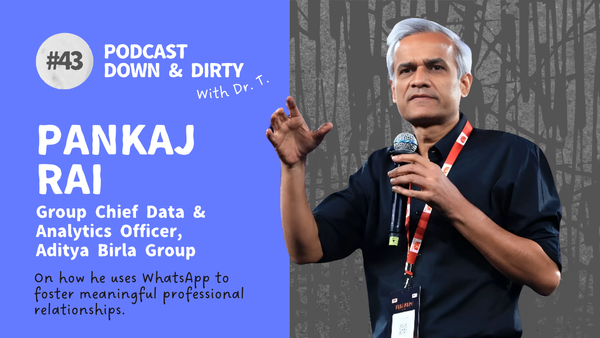Is the welcome post The Great Resignation grand?
Employees tell Poocho some hiring culture problems persist.

Written by Kajal Iyer
The pandemic made many people re-orient their lives, especially the focus they gave to their work life. Unlike the characters in Apple TV’s hit show Severance, there was no way an employee could have a clear demarcation between work and home life during the pandemic as lines were constantly blurred. For many, the pandemic meant they needed to spend more time with ailing relatives and it showed them who or what mattered. Often, there was little institutional support. In the West, this led to the Great Resignation phenomenon which further sparked discussions like the ones on the subreddit r/Antiwork where people are wondering, “What is the purpose of work and the daily hustle?” In China, the Lie Flat movement is decrying the constant focus on productivity.
India has also seen its own version of the Great Resignation. But unlike the West, people here aren’t quitting as much to find their personal comfort level of work as much as to get to a better paying or different role. The country being a labour and workforce intensive market, the disruption isn’t considered to be as widespread as in the West. This India Today report cites an Amazon India survey which claims that most employees in India, want to leave for better prospects.
Poocho spoke to some of these people who were part of the Great Resignation to decode not just their reasons for quitting but also to understand their process of joining a new workplace. While most respondents spoke of a plethora of emotions they went through during the process, what interested us was whether they would want anything to have gone differently in the job hunt process. Job hunts are typically stressful events but with the great churn in every industry and in an economy hit by Covid, it was an entirely different experience.
A marketing executive Poocho spoke to felt that companies had not really tweaked their hiring process in the wake of the Great Resignation. “So as a country, in a setup...I don't know how it happens elsewhere...but we don't have the habit of taking a bet on people. We, we want to be extremely safe. Okay, this top college, this brand manager experience, hence I'm taking him for a brand manager role in my organisation. Nothing else, not the skill sets. In interviews, we rarely get skill sets out of people, we rarely talk about their understanding, it's more tick marks. There are very few interviewers who do it, but that's up to them as individuals, not the whole process,” he said.
The marketing executive specifically noted the lack of empathy in the hiring process and beyond. Nimisha Das, Director HR at Kellogg South Asia has in a piece in the Financial Express said that it was only the empathetic employers who weathered the Great Resignation better, “Many organisations made an effort to be more humane, more empathetic towards the workforce during the pandemic. We should sustain this empathy at scale as we endeavour to strengthen employee-employer relationships and build a better normal. An empathic employer was able to navigate exigencies during the past few years and will be the one endeared by prospective employees for its empathetic work culture.”
One frustrating aspect that doesn’t seem to have changed is the lack of a response from recruiters on whether the candidate was still in consideration or dropped. An early-stage HR executive told Poocho, “Recruiters, random recruiters from a lot of consultants would give you a call and they would just ask - ‘What is the years of experience you have, what is your current CTC, what is your expected CTC? What is your notice period?’ Then they would just end the call randomly telling you that you will get a call soon. No reply from any of those consultants.”
But one of the main concerns that employees job hopping highlighted was the notice period. An IT professional looking to quit an MNC IT services and consulting company told Poocho, “I would like to change the notice period policy. I feel that the notice period should be the same for all companies. Companies that are hiring, they say ‘join us immediately,’ but they themselves have a notice period of three months. That is very bad and not ethical, that is not the kind of work ethic that should be there. That is a lack in the system and should be changed.”
The marketing executive mentioned earlier added, “The first thing that I’ll change is the 90-day notice period that people are asked to serve. I think it's mad honestly, because every organisation expects the other person to join in 30 days, but when you are supposed to let go of a candidate, you will not let go of them for 90 days. So I think the first thing that needs to change is that...if we have to get better, as a country, in handling talent better and not crib that good talent is going outside and working in different countries, I think the first thing that needs to change is this.” Ironically lengthier notice periods are considered to be retention tactics in many organisations, albeit a negative tactic and feeds into the lack of empathy loop which has forced many employees to reconsider work as a whole.
While the situation may not be as dire in India, the attrition rates have given HR personnel a pause. A combination of better work life balance, pay and attention to the little things might help HR retain and engage employees. But at the same time, if the employee who is quitting a previous job as part of the Great Resignation and coming in, doesn’t feel welcome, chances are high that the process of the Great Resignation may replicate itself over and over again.



